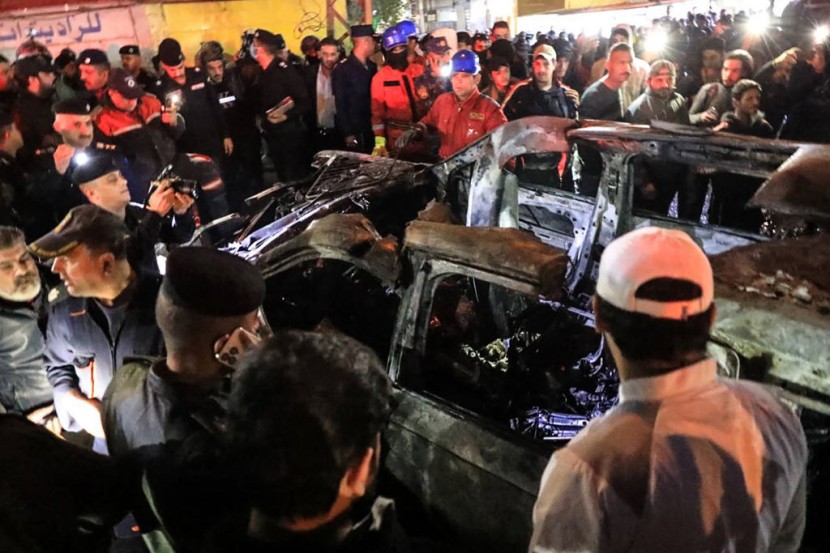The Middle East witnessed a surge in tensions following the US assassination of Wissam Mohammed 'Abu Bakr' al-Saadi, an Iran-backed militia commander, in Iraq.
The targeted strike, conducted by an American drone, resulted in the destruction of the vehicle carrying al-Saadi and two other members of Kataib Hezbollah in Baghdad.
Iraqi Spokesman Condemns US Assassination Strike

The aftermath was recorded in violent photos, showing the burning car wreckage in the middle of a residential area. Yehia Rasool, a spokesman for the Iraqi military, denounced the strike as "a blatant assassination" that ignored the lives of others and broke international law. He underlined that such acts threaten Iraqi sovereignty and civic peace, calling for the end of the coalition operation in Iraq, which he said had turned into a destabilizing element.
The strike, undertaken without prior consultation, has intensified ongoing discussions between the US and Iraqi officials regarding the presence of American forces in the country. Qasim al-Araji, Iraq's national security adviser, denounced the attack as "cowardly and reprehensible," reiterating the Iraqi government's determination to end the international coalition's mission.
The targeted commander, al-Saadi, was allegedly responsible for orchestrating the January 27 attack on a US base near the Jordan-Syrian border, resulting in casualties among American soldiers. His death has prompted mourning among supporters, with a large crowd gathering for his funeral in Baghdad. Shia clerics, tribal leaders, and military figures paid tribute to al-Saadi, praising his role as a "new generation of resistance fighters."
There has been an increase in conflict in the area between US soldiers and militias supported by Iran, and this escalation. Tensions got worse when the US launched airstrikes on militia locations in Syria and Iraq in response to earlier assaults. US Central Command defended its course of action, stating that it was necessary for the safety of US soldiers while indicating that it was prepared to face any threats, according to The Guardian.
Read Also: Azerbaijani Presidential Win Widely Criticized
Iraq Reacts to US Strike
Reactions to the American attack have been diverse in Iraq's difficult political environment. Some factions, especially Kurdish and Sunni parties, see US soldiers as a counterweight to expanding Iranian dominance, while others want a forceful reaction to foreign presence. However, discussions over Iraqi sovereignty and the need of a foreign military presence have returned due to the audacity of the Baghdad attacks.
The prime minister of Iraq declared a time of mourning for the whole state and condemned the foreign forces' violation of their sovereignty as the crisis developed. The effects of this happening raise critical considerations about the future course of US participation in the area and its consequences for stability.
Diplomatic efforts and regional cooperation will be essential in averting further escalation while encouraging a path towards peace and stability in the Middle East in the face of rising tensions. However, finding long-lasting solutions is very difficult due to the underlying complexity of regional dynamics and conflicting interests, New York Post reported.
© 2025 HNGN, All rights reserved. Do not reproduce without permission.








